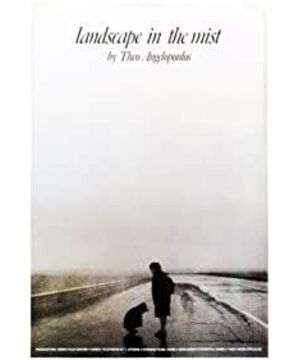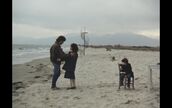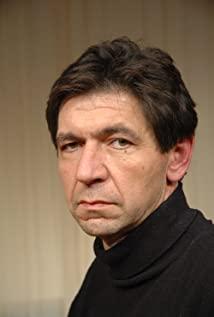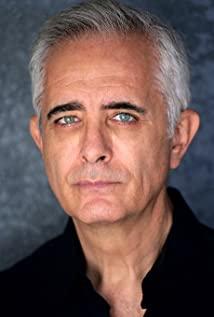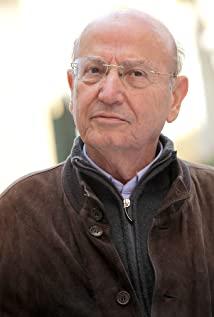Many pictures of a
movie are like a gorgeous oil painting. A few scenes that touched me deeply: When Ulla and Alexander came out of the police station, snow fell in the sky, fluttering snowflakes slid from the sky to the people who were frozen on the ground, and time seemed to freeze. , Alexander and Ullah held hands and continued to run forward, heading for the same indefinite future.
When the Greek tragic actors came out of a theater, the old actors had a heroic momentum, step by step solid footsteps in my heart, I couldn't help realizing that no difficulties could stop me. In the heart of the artist, this scene actually reminded me of the return of a group of mourners in the movie "Django".
The scene of a huge hand being held up from the water, this huge hand statue with a broken index finger, seems like a prophet who hesitates to speak, and seems to be a conductor of fate, seeing through the human beings in the vast sea The fate of the hero and heroine fell into contemplation again. The huge hand swayed in the air and pointed in different directions. The fate of the hero and heroine will also continue to move forward under the impetus of time, and the joys and sorrows have been crushed into pieces of time. end.
There are no scenes with too many plots. The movie uses a lot of long shots. At the same time, with the compact and sad rhythm of the violin, we seem to be passers-by in the movie. In a small restaurant, watching a little boy and little girl walk in the storm On the streets of China, the people on the streets are also in a hurry, busy in their own world, and also chasing their own "father" and "homeland".
The setting of the movie reminds me of the plot of another movie Central Station, a little boy and his mother go to find his father far away, his mother died in an accident, and Dora, another peddler who has become numb to life, During the journey with the little boy, I gradually understood the possibility of another self, and got "redemption" during the journey. The road ahead of human beings is full of fog, different people are full of different dreams or ideas, some people are used to being indifferent on the way forward, just like the owner of a restaurant, when faced with an artist’s performance, he scolded him; Because of their own desires, it is like the driver who insulted Ulla; some people are constantly working and struggling, just like the tragic actor Orestis who has accompanied the most; some people are also confused and stumble on the road of life, Such as the officer Ulla finally asked for money.
Second, growing up
Little Ullah and his younger brother also represent all of us. On the way of growing up, they began to witness different faces of the world, witness the inevitable sadness, witness the hurt, and witness the warmth, and the young Alexander can be said to be Representing a hope of the director, it is a salute to life, it is a sincere belief in life, Alexander has been growing up on the road, from a sleepy child on the train, to a man who can be independent in the hotel for himself. The little boy who makes money can sit quietly in Orestis and listen to him tell the story of the troupe. There is no lack of sadness in the process of human growth, but it is this vitality that leads human beings to the front of the fog.
Most people have a sense of anger at the sight of Ulla being raped, the feeling of seeing hope destroyed, ruthlessly trampled on, and darkness ushered in life. We can say that the director is cruel, or that the theme is too dark, but we can't deny that it is true, and the same sad scene also has a pony that grieves and dies next to the wedding. We will debate the topic of human nature is inherently good and human nature is inherently evil, but when we see this scene, we do believe in the real existence of evil, and believe that some evils need to be defended and fought with life, and some good needs to be fought and fought for. maintained.
Growth requires a price, so the price paid by Ullah is too high. There are still many such tragedies and sufferings in real life. In some African countries, there are still so many people who are struggling for their own survival, and are also stepping in the quagmire of sin. step to survive. I only noticed that Orestes is a gay when I was reading the film review. Ulla's feelings for Orestes are just like the feelings of the young heroine in "The Killer Is Not Too Cold" to the male lead. A kind of feeling like dependence on his father, and after finding out that Orestis is gay in the hotel, Little Ulla also realized the unreality of her relationship, turned and left him, life taught him a lesson, many Things are involuntary and need to be let go.
As a tragic actor, Orestes faces the lack of a place to perform in his troupe, the death of his grandfather who raised him as an adult, and his increasingly difficult life. In his dreams, he also has a homeland of his own. There is a place where his own troupe can perform art, where his relatives can stay with each other, and there are people who tolerate him. His pursuit is also full of hardships.
We will eventually take pains and hope, step out and go to tomorrow, no matter what the fog ahead is, we will go to that place with testimony.
View more about Landscape in the Mist reviews


